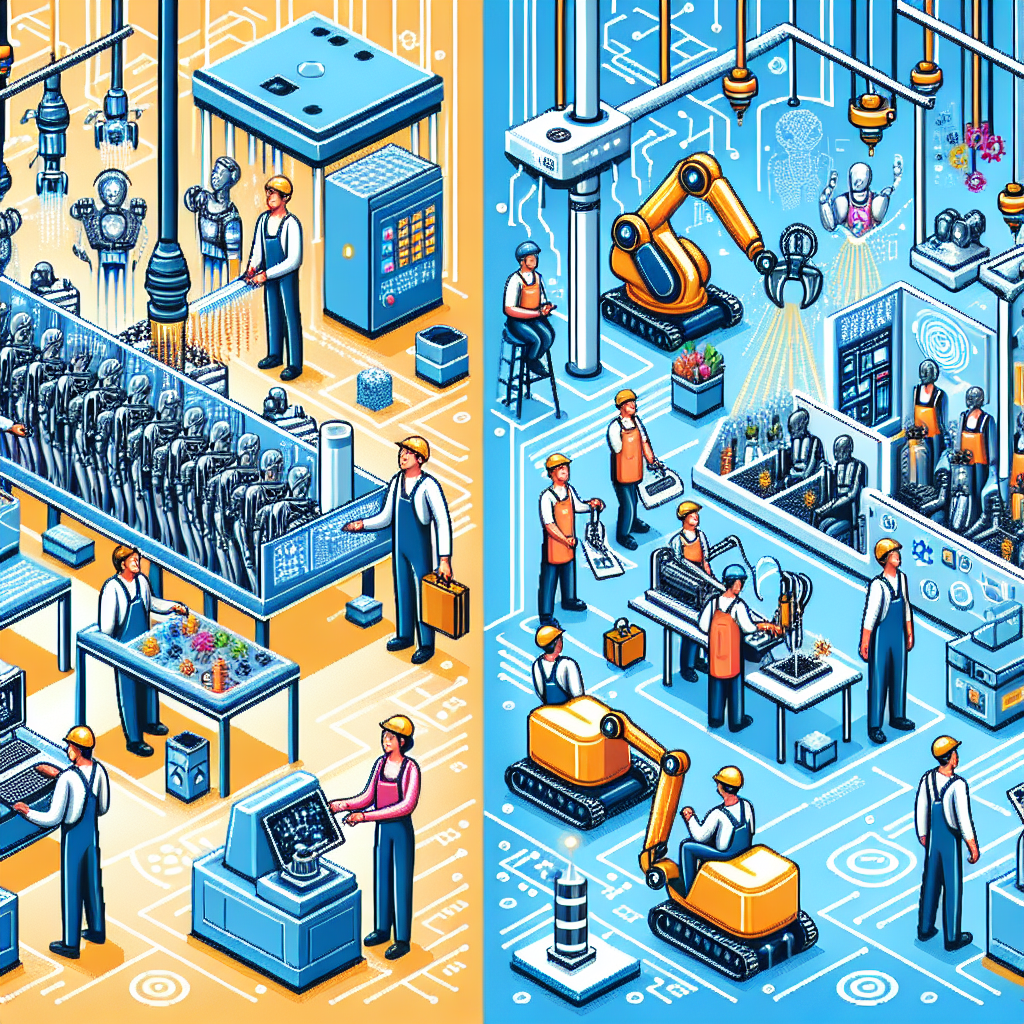The use of artificial intelligence (AI) tools in manufacturing has revolutionized the industry, enabling businesses to streamline processes, increase efficiency, and improve productivity. From predictive maintenance to quality control, AI tools offer a wide range of benefits that can help manufacturers stay competitive in today’s fast-paced market.
One of the key benefits of using AI tools in manufacturing is predictive maintenance. By analyzing data from sensors and equipment, AI can predict when machines are likely to fail and schedule maintenance before any issues arise. This proactive approach can help prevent costly downtime and keep production running smoothly.
Another advantage of AI tools in manufacturing is improved quality control. AI can analyze images and data in real-time to identify defects or anomalies in products, helping manufacturers catch errors early in the production process. This can result in fewer defects, lower scrap rates, and ultimately higher customer satisfaction.
AI tools can also help manufacturers optimize their supply chain by predicting demand, optimizing inventory levels, and identifying opportunities for cost savings. By analyzing historical data and market trends, AI can help manufacturers make more informed decisions about sourcing, production, and distribution.
In addition to these benefits, AI tools can also help manufacturers improve safety in the workplace. By analyzing data from sensors and cameras, AI can identify potential hazards and alert workers to dangerous situations. This can help reduce accidents and injuries, creating a safer working environment for employees.
Overall, the use of AI tools in manufacturing can help businesses increase efficiency, reduce costs, and improve quality. By leveraging the power of AI, manufacturers can stay ahead of the competition and meet the demands of today’s rapidly changing market.
FAQs:
Q: What types of AI tools are commonly used in manufacturing?
A: Some common types of AI tools used in manufacturing include predictive maintenance systems, quality control systems, supply chain optimization tools, and safety monitoring systems.
Q: How can AI tools help improve quality control in manufacturing?
A: AI tools can analyze images and data in real-time to identify defects or anomalies in products, helping manufacturers catch errors early in the production process and reduce scrap rates.
Q: Can AI tools help reduce downtime in manufacturing?
A: Yes, AI tools can help reduce downtime by predicting when machines are likely to fail and scheduling maintenance before any issues arise. This proactive approach can help prevent costly downtime and keep production running smoothly.
Q: Are AI tools expensive to implement in manufacturing?
A: The cost of implementing AI tools in manufacturing can vary depending on the size and complexity of the operation. However, many manufacturers find that the benefits of using AI tools outweigh the initial investment in the long run.
Q: How can manufacturers get started with implementing AI tools in their operations?
A: Manufacturers looking to implement AI tools in their operations should start by identifying areas where AI can have the greatest impact, such as predictive maintenance, quality control, or supply chain optimization. They should then work with AI vendors or consultants to develop a plan for implementation and training.

